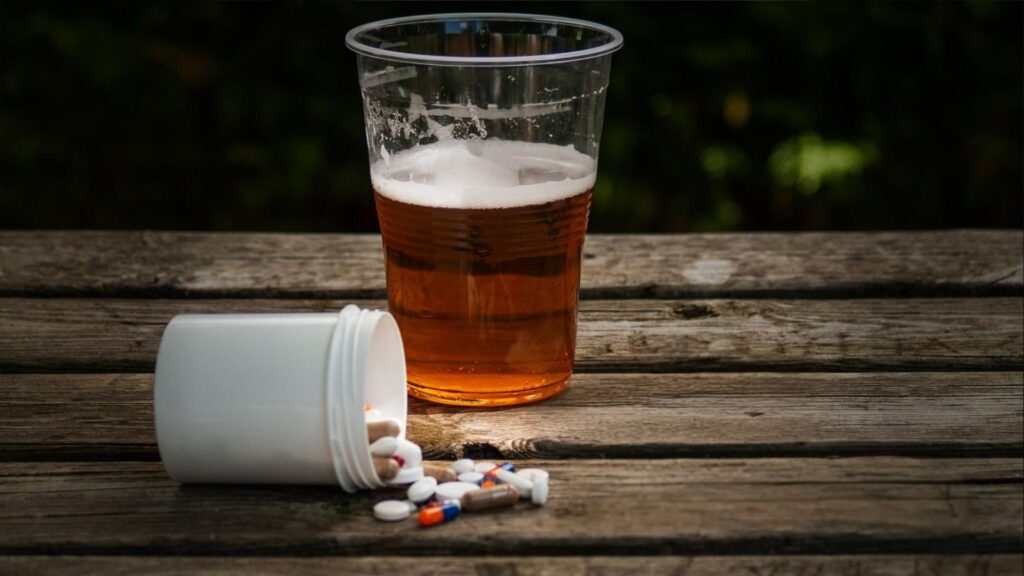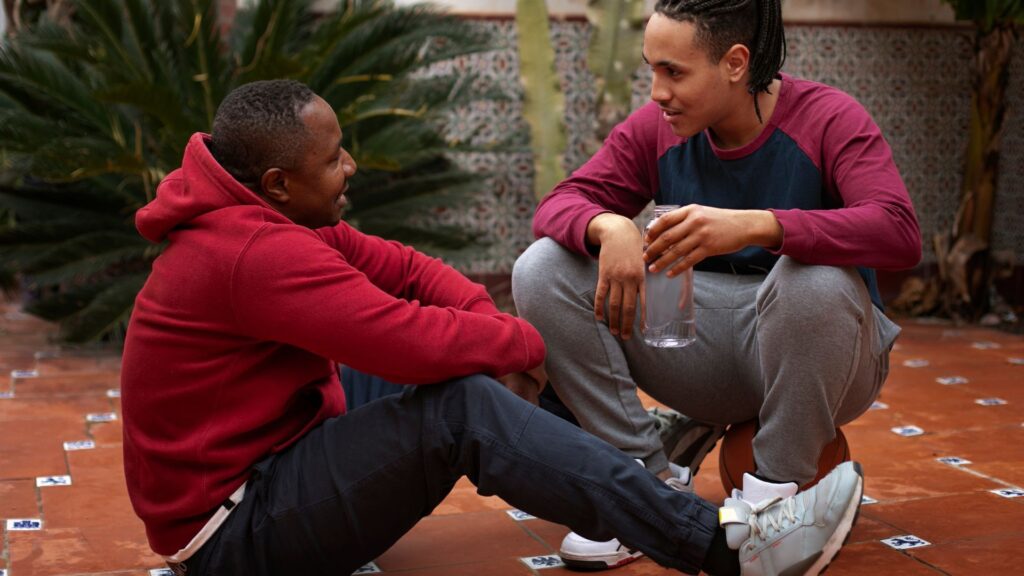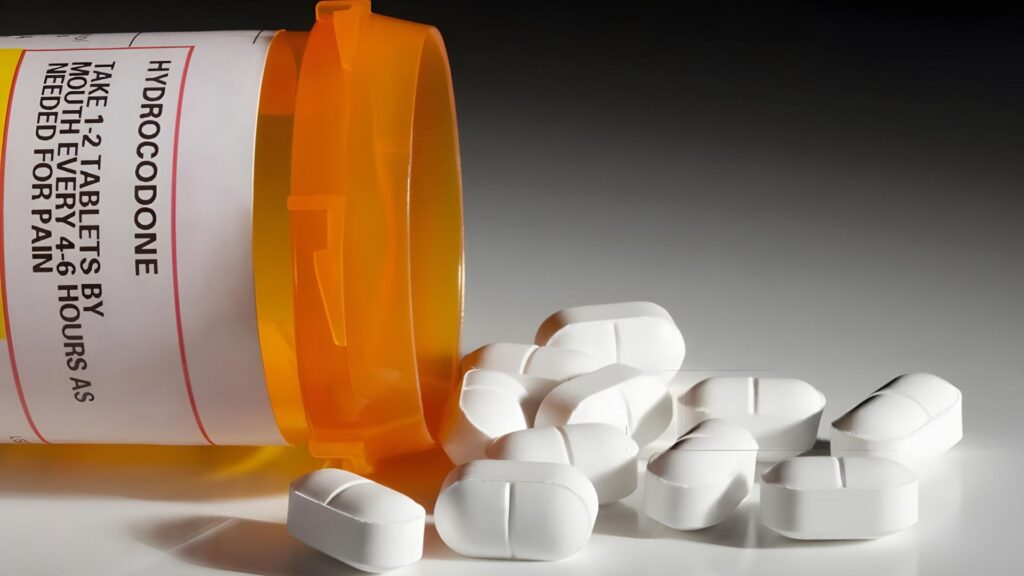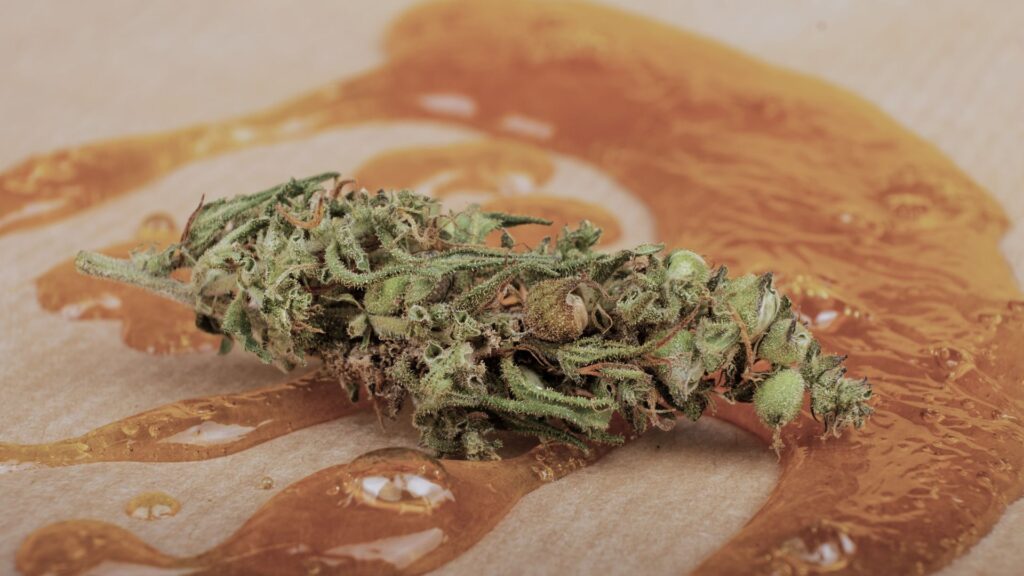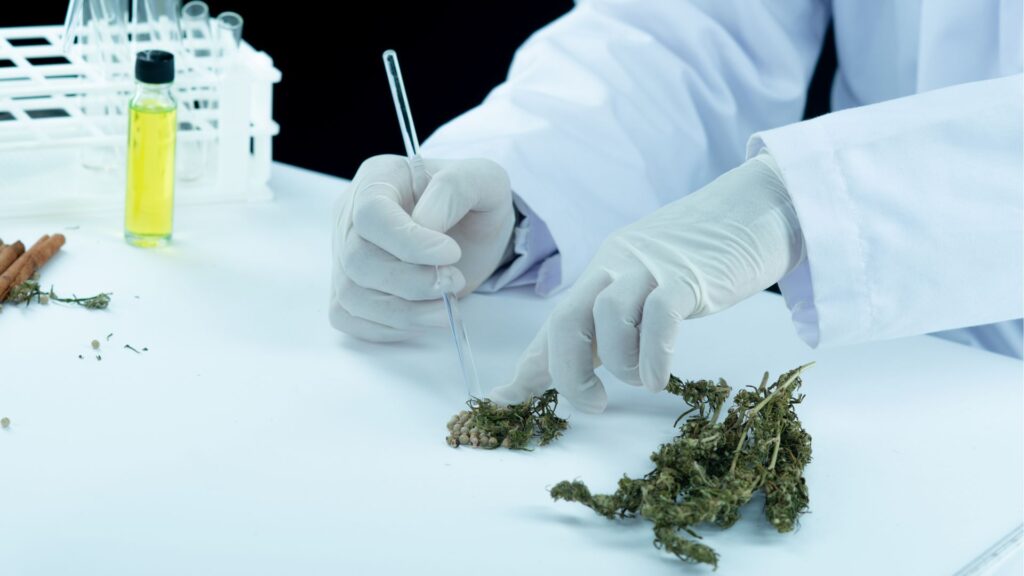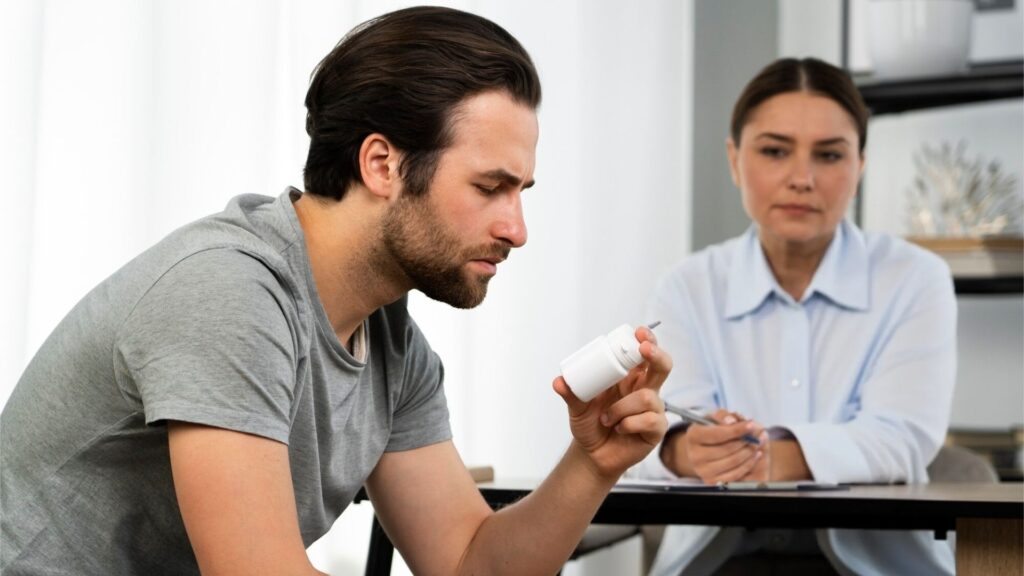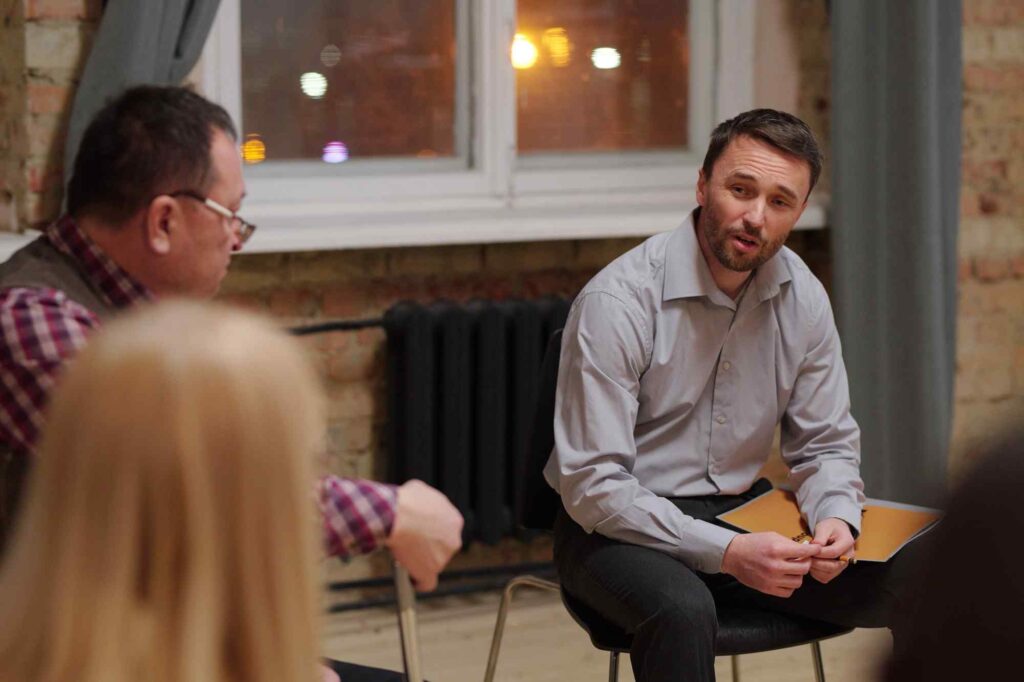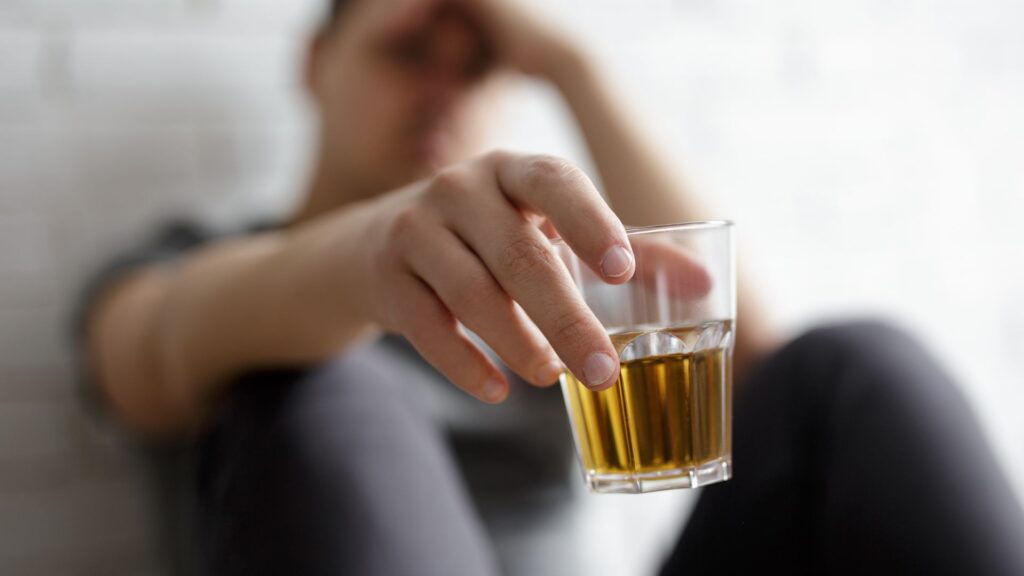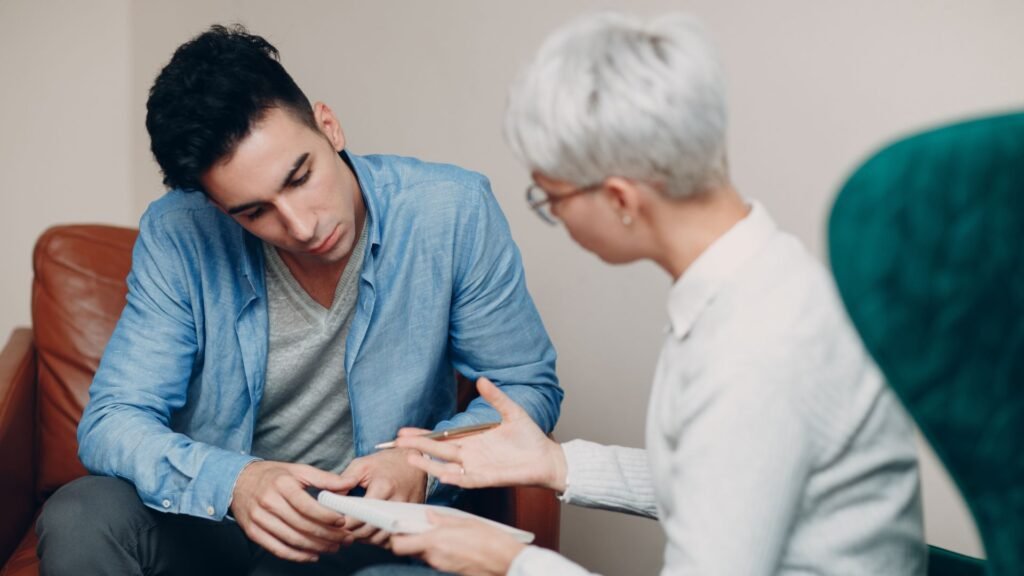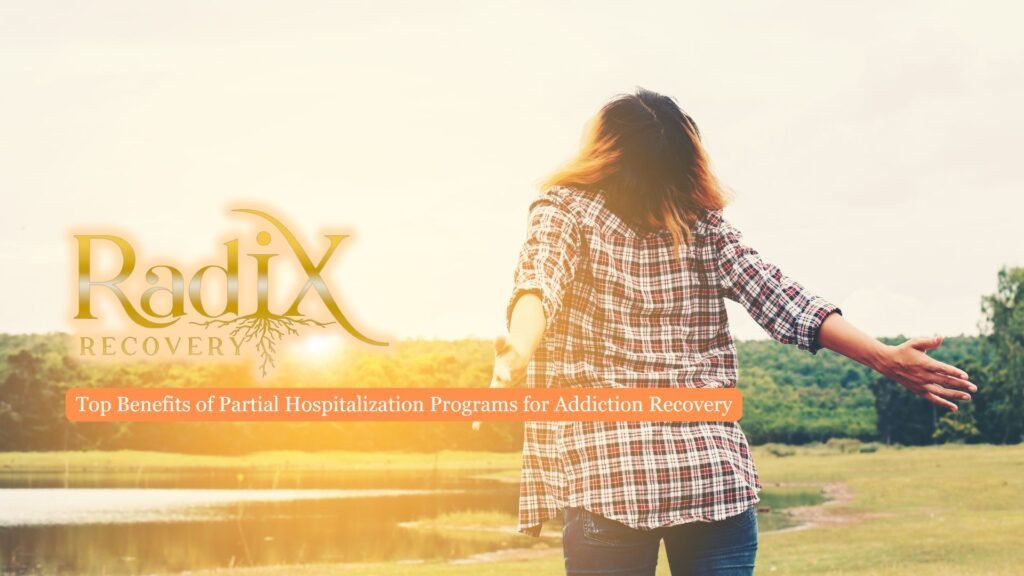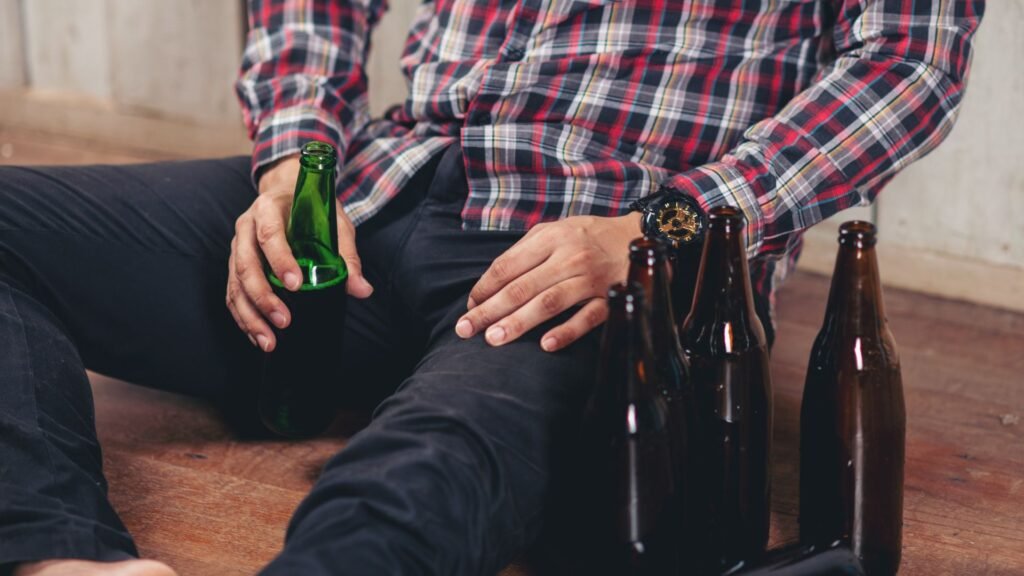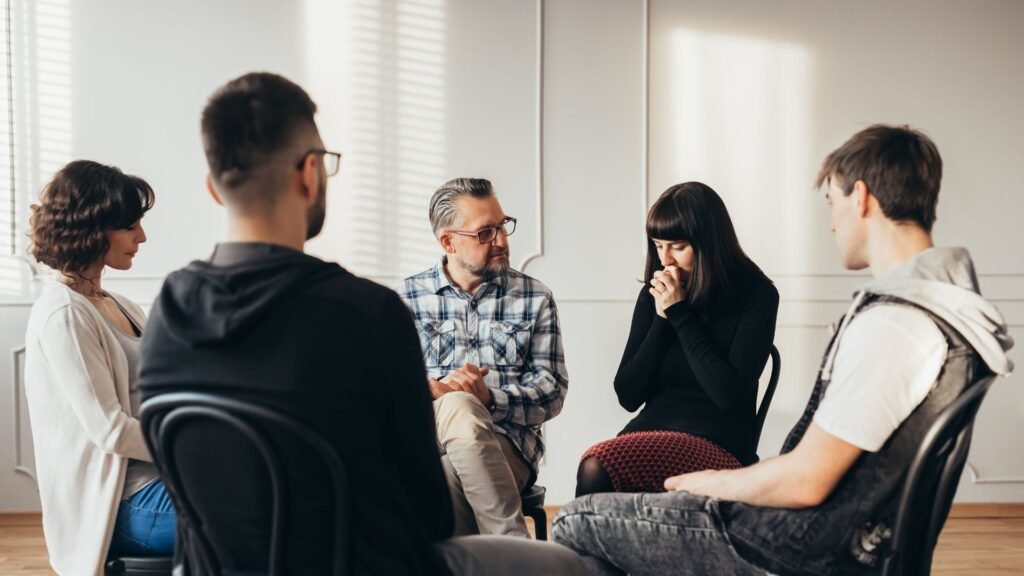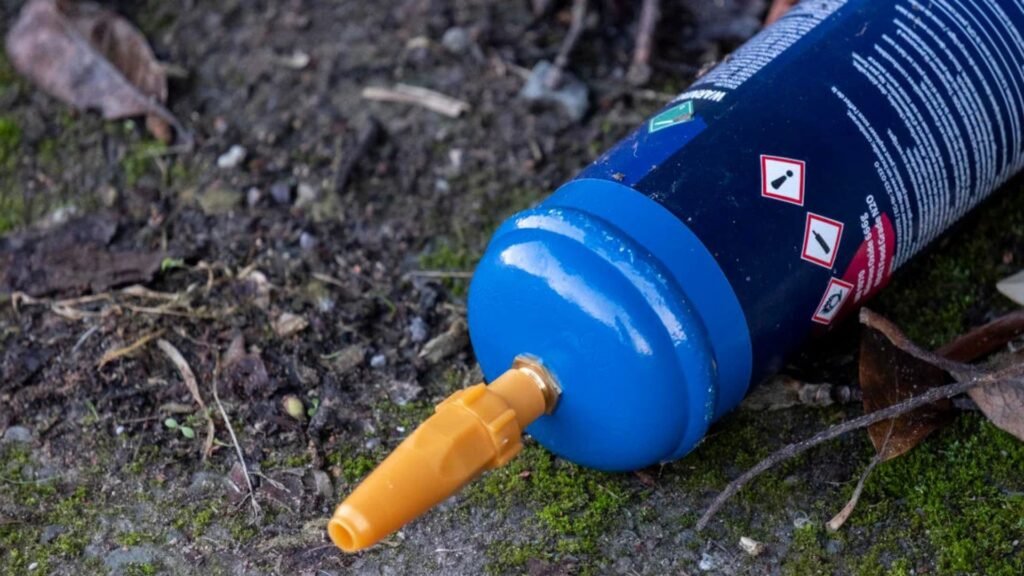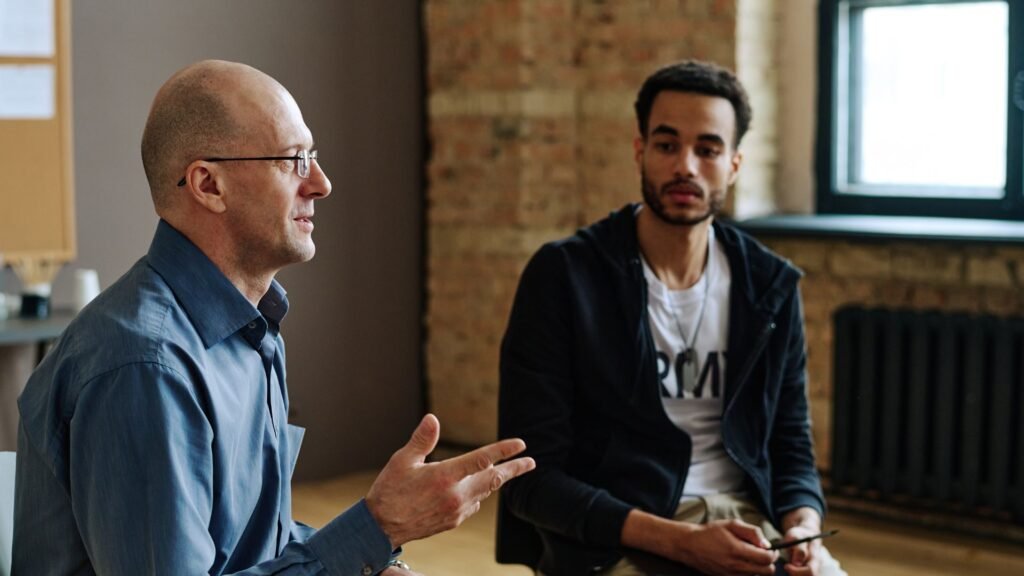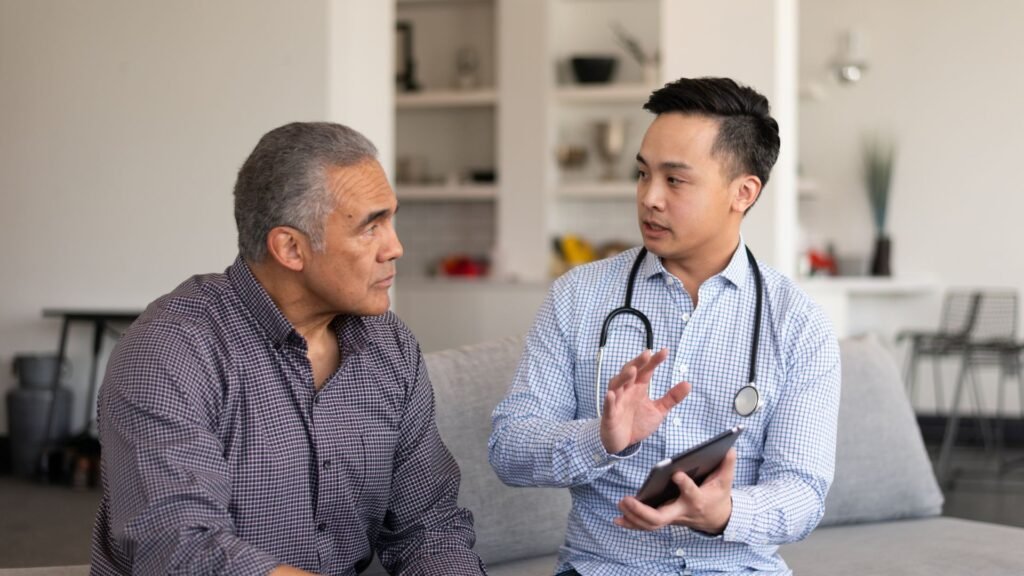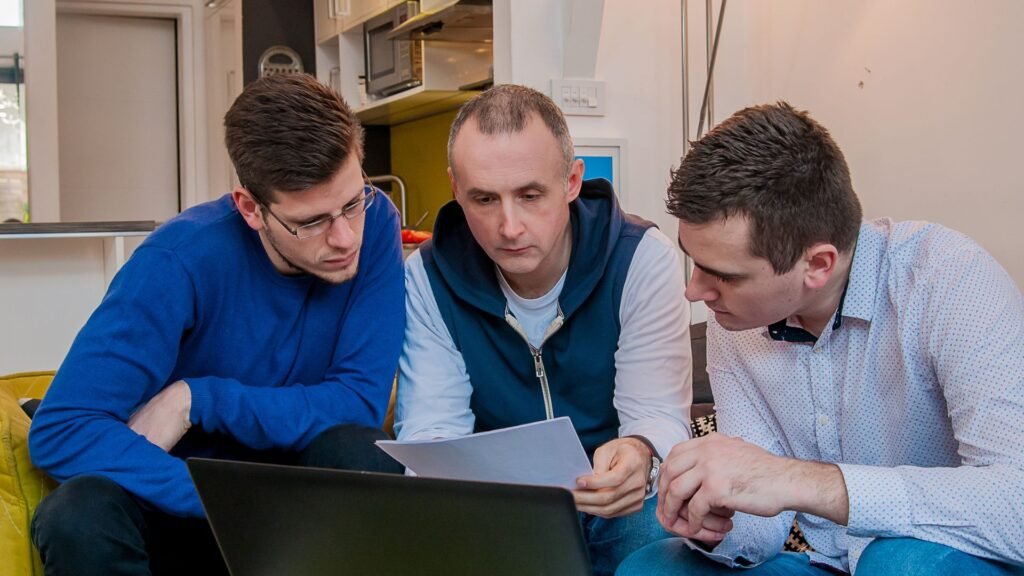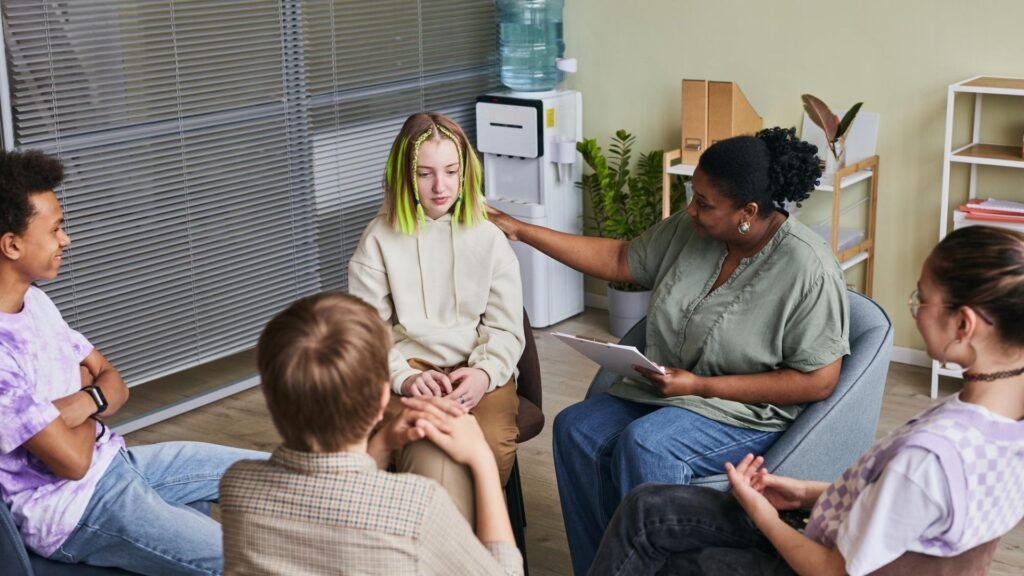Group therapy has become a fundamental component of addiction recovery by leveraging the innate human desire for connection, providing a strong alternative to the isolation that often accompanies substance use.
This article delves into the various types of group therapy employed in addiction treatment, emphasizing how each approach targets specific needs and phases of recovery.

Psychoeducational Groups
These groups help participants by providing structured education about addiction, its effects on the brain and behavior, and the strategies necessary for managing cravings and preventing relapse. Those groups also include comprehensive discussions about the available treatment options.
By combining information-sharing with peer support, psychoeducational groups empower members to better understand their diagnosis, recognize the consequences of substance abuse, and develop healthier coping mechanisms for stress and triggers.
Through interactive sessions, often including discussions, skill-building exercises, and Q&A, participants gain practical tools for recovery while also reducing feelings of isolation and denial that frequently accompany substance use disorders.
Skills Development Groups
Skills development groups focus on teaching effective coping strategies and techniques to manage triggers, ultimately reducing the risk of relapse. Through role-playing and interactive exercises, you’ll enhance communication skills, fostering healthier interpersonal relationships.
You’ll learn practical tools for stress management, emotional regulation, and relapse prevention, which are vital for long-term success. Skills development groups often incorporate cognitive-behavioral therapy (CBT) to help you identify and modify harmful thought patterns related to substance use.
Cognitive Behavioral Groups
Cognitive behavioral groups are a widely used form of group psychotherapy in addiction recovery, grounded in the principles of cognitive behavioral therapy (CBT). In these therapy sessions, a trained therapist guides participants through structured exercises designed to help them identify and challenge the negative thought patterns and behaviors that contribute to substance use.
Cognitive behavioral groups focus on cognitive restructuring-teaching individuals to recognize distorted beliefs such as “I’m a failure” or “I can’t cope without substances”-and replace them with healthier, more adaptive ways of thinking and behaving. Through group interaction, members learn practical coping skills, practice problem-solving, and receive feedback and support from both the therapist and their peers.
This collaborative environment not only helps participants gain insight into their own triggers and relapse risks but also fosters accountability and motivation for change, making cognitive behavioral therapy groups an effective component of comprehensive addiction treatment.
Support Groups
Support groups play a vital role in addiction recovery by offering a unique group setting where individuals can connect with others facing similar struggles.
Unlike individual therapy, a group therapy session within the group allows members to openly share their experiences, challenges, and successes, fostering a sense of belonging and understanding that can be difficult to achieve alone. Within the group, participants benefit from mutual encouragement, accountability, and the opportunity to learn from the diverse perspectives of their peers.
These groups provide a supportive environment where members can discuss setbacks without fear of judgment, celebrate progress, and develop healthy relationships that reinforce their commitment to sobriety.
Interpersonal Process Groups
Interpersonal process groups focus on the complex interpersonal dynamics that often influence substance use and mental health. In these group sessions, group members interact with others who share similar experiences, allowing them to explore how they relate to and communicate with people both inside and outside the group.
The therapeutic leader guides discussions, identifies recurring themes, and ensures a safe space for open communication. Through this process, you gain insight into your behaviors and relationship patterns, leading to improved communication skills and healthier social interactions.
These are crucial for sustained addiction recovery. Typically involving 6-12 participants, interpersonal process groups effectively address the emotional and relational aspects of addiction, contributing to your overall treatment outcomes.

Specialized and Expressive Groups
Specialized and expressive therapy groups in addiction recovery play a crucial role in addressing the diverse needs of individuals, especially those who may also be managing mental health conditions. These group therapy offers a dynamic space where members may explore their emotions and experiences through creative modalities such as art, music, drama, or role-playing, allowing for expression beyond words.
These groups foster mutual support and understanding among members who share similar challenges related to addiction.
Within these groups, participants are encouraged to develop new skills – whether it’s learning healthier coping mechanisms, improving communication, or practicing emotional regulation – that are essential for both recovery and daily life.
Finding the Right Group Therapy for You
With so many therapy options available, including both individual and group therapy, it’s essential to consider your unique needs, preferences, and goals. The benefits of group therapy are numerous – it provides a sense of community, emotional support, and the opportunity to learn from others who truly understand your experiences.
However, the right type of group therapy can vary from person to person; some may thrive in skills-based or psychoeducational groups, while others benefit more from expressive or support-focused settings.
Consulting with a professional can help you explore which therapy option aligns best with your personality and recovery stage, ensuring you receive the encouragement, understanding, and practical tools necessary for success.
Final Thoughts from Radix Recovery
At Radix Recovery in Cedar Rapids, group therapy is thoughtfully integrated with individual therapy sessions to provide a well-rounded, personalized approach to healing. Within these group settings, clients often feel more comfortable opening up about their experiences, knowing they are surrounded by others who understand their journey. The safe environment cultivated by Radix’s experienced facilitators encourages honest conversation, vulnerability, and personal growth.
